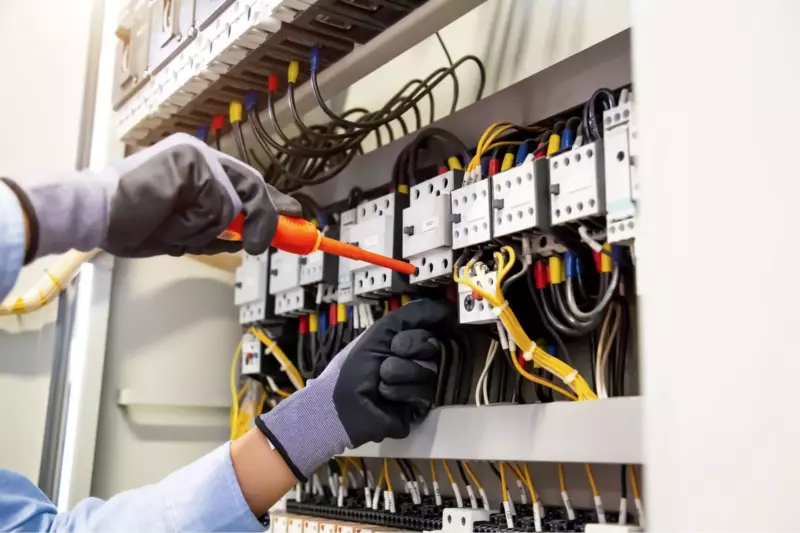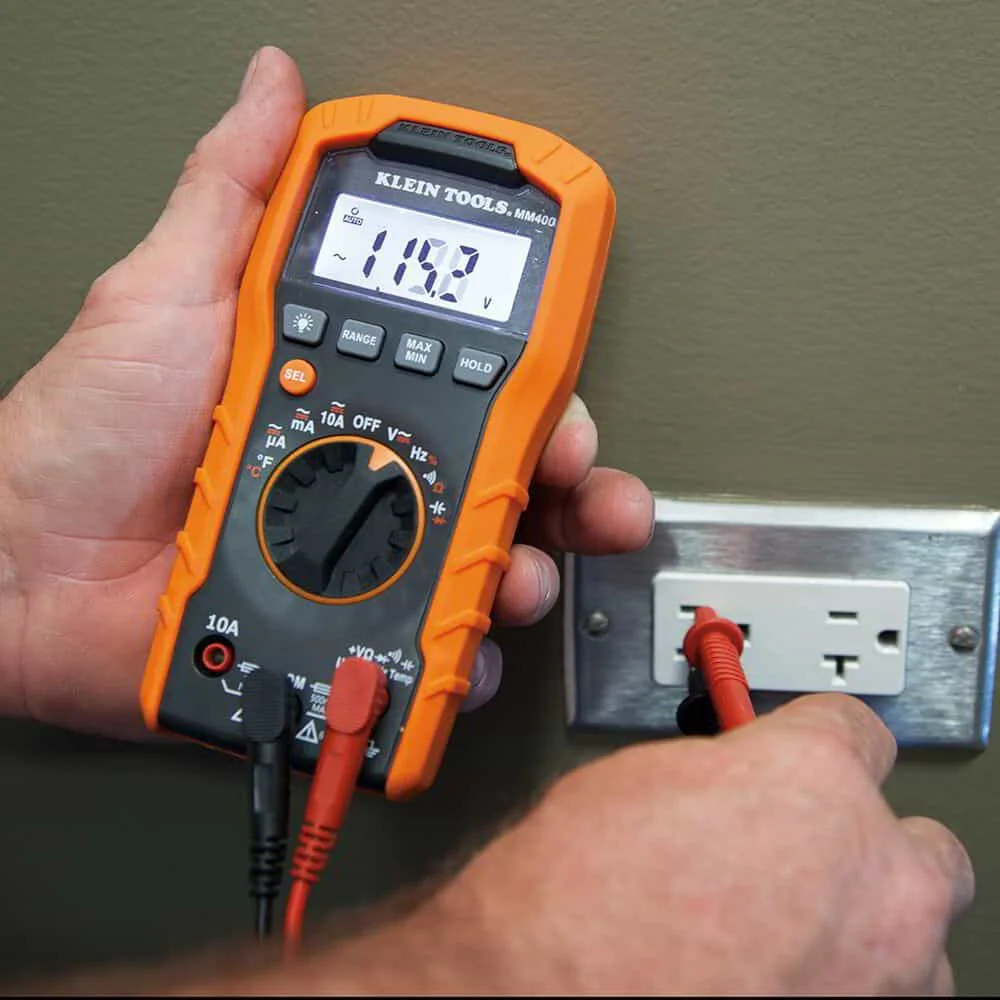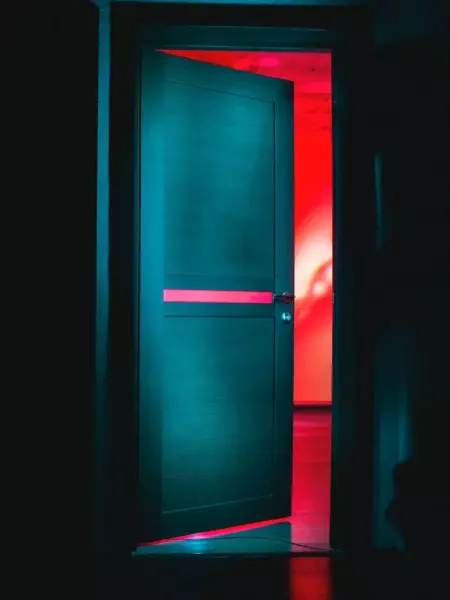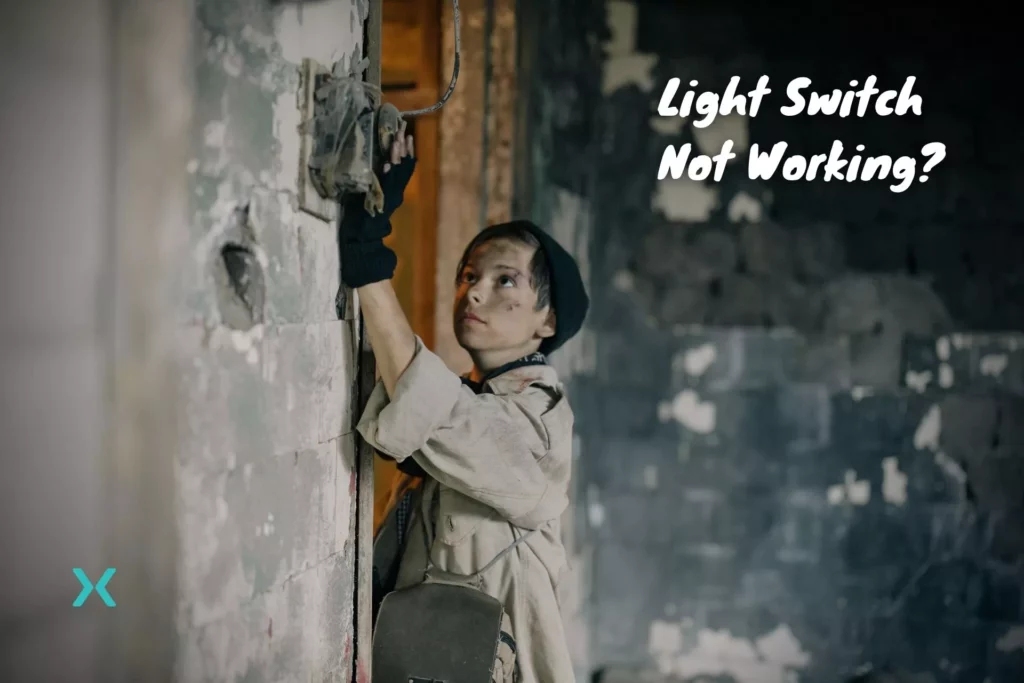Table of Contents
Light Switch Problems? Here’s How To Fix It!
If a light switch isn’t working, it’s generally because there’s no power to the light circuit. So the first thing to check is the breaker in your home’s electrical panel. If that’s not the case, you have other issues.
These could include a bad light switch, a problem with the light bulb connection, loose wires in the circuit, or a bad light fixture. While a professional can certainly troubleshoot the issue for you, you may be able to repair or replace it yourself with a little trial-and-error.
🛑 CAUTION: Working with electricity can be extremely dangerous. If you feel uncomfortable troubleshooting electrical problems, contact your local electrician.
However, most solutions are very doable for the average DIY-er. If you notice issues with your light switch, feel free to try these troubleshooting tips.
⭐ Circuit Breaker Tripped

The circuit breakers in your home function to protect you from dangerous electrical problems. Sometimes a tripped circuit breaker is a fluke, but other times, problems like bad switches, faulty electrical outlets, and short circuits can be the cause. As such, the solution involves a bit of troubleshooting, but anyone willing to do a little DIY can handle it themselves.
✅ Flip the Breaker, Then Troubleshoot
First, flip your circuit breaker back to the “ON” position.
Next, try the bad switch again. If the light turns on, you’re home-free, but if the circuit breaker trips again, you might not be out of the woods yet. If the breaker continues to trip, it could be a case of loose wiring, a bad switch, or live wires coming into contact with a neutral wire.
If you isolate the loose wiring to the switch itself, you should be able to fix it by turning off the power, removing the bad light switch, and checking each wire and terminal screw. If the switch fails even after doing this, you might need a new light switch.
However, if you have a multimeter handy, you can definitively determine whether the problem originates with the light switches. If it’s the circuit breaker, things can get a little more tricky.
🧰 How To Test Your Light Switches With a Multimeter

If you have a voltage tester or multimeter on hand, testing your light switch before you put it back in place can save you a lot of trial and error. Sometimes, just installing a replacement light switch is the easiest way to deal with switch issues.
We’ve outlined the testing steps below.
- Safely remove your light switch from the wall (if you haven’t already). Make sure to turn off the associated breaker first.
- Change your continuity tester to the “continuity” or “ohms” setting.
- For a single-pole switch, put one pole on each side terminal.
- For a three-way switch, touch one pole to the common screw and one to a normal side terminal. Make sure to test both side terminals on a three-way switch.
- If your multimeter does not return the number “1,” you may have a malfunctioning light switch.
⭐ Flickering Light Bulb

If you have a light fixture or lamp directly connected to one of your faulty light switches, the issue can manifest as a buzzing, flickering, or dim light. While the light switch itself isn’t always the cause, it doesn’t hurt to check.
Before you remove the tripped wall outlet, make sure to check the light fixtures themselves for issues with light bulbs. For example, many people have problems connecting an LED light bulb to a dimmer switch. Unless the LED light bulb was designed to work with a dimmer, it might flicker consistently.
To fix that issue, replace it with a new bulb designed to work with your light fixture and a dimmer switch. However, if the issue persists, you could have a loose connection in or near your light switch. When a hot wire is loosely connected to a socket, light, or electrical device, the circuit won’t complete properly, resulting in flickering lights.
🧰 Fix the Circuit
Eliminating light switch problems remains the only way to restore your lights to their natural and reliable state. If the short circuit lies inside the failed switch, you’ll have to safely remove the cover plate, remove the switch from the electrical box, and replace it with a new one.
However, if you just have a wiring problem, you may be able to fix it by re-seating the wires around the switch itself. Cover any over-exposed wires with electrical tape if you have a grounding or short-circuiting issue.
⭐ No Power

If power cannot reach your faulty light switch, the issue could stem from several things. A loose wire might have completely disconnected, or a circuit breaker may have flipped, for example. Unfortunately, loose wire connections can be extremely dangerous.
An internal arc flash from a loose wire can be an enormous fire hazard. They cause hundreds of electrical fires every year. Unless you have an electrical background, you must leave faulty wiring fixes to a professional. An electrician can narrow the problem area with the loose or exposed hot wire.
Since this may be inside your walls and not directly at the light switch, attempting on your own can be a complicated (and involved) job.
⭐ Bad Light Fixture

Sometimes, tripped circuit breakers make it look like your light switch is to blame. However, the culprit may be an incomplete light circuit in your light fixture. While this can be fixed with some minor electrical work, it can be tough to determine which part of the fixture does not work.
Make sure you turn off the same circuit at your breaker box. Before you do that, remember that it may be a better use of your time and money to just purchase a new fixture, especially if it is inexpensive. However, it may be worth troubleshooting if the fixture is expensive or carries sentimental value.
You can test the continuity of the fixture by removing it from the wall or roof (after turning the circuit off at the breaker panel, of course). Using your previous multimeter, touch one end to the white neutral wire and the other to the metal shell of one of the light sockets.
The multimeter will read “0.000” if everything works as it should.
After that, check the black wire by connecting one end to it and one end to the brass part of your light socket. Again, “0.000” indicates continuity in this case. You need continuity from the white and black wires to ensure the fixture works properly.
🧰 Check the Light Socket
The first broken mechanism you should check for is a bad light socket. You can check for a bad socket by using a voltage tester. Carefully do this before turning off the power at the service panel.
First, remove the light bulb. Next, touch the tester to the center of the socket with the light switch flipped off, then on. If there is no change, the socket may not be receiving power.

🧰 Check the Ballast
Many light features use something called a ballast to regulate the incoming voltage. If you see burn marks, hear a humming or popping sound, or notice that the light fixture emits dull light or slowly lights up, the ballast may be to blame. As far as home repairs go, these two solutions rate a bit higher on the difficulty scale.
Ballast and light socket replacements require some fairly involved wire splicing procedures. If you feel uncomfortable performing them, please don’t hesitate to contact a professional electrician for help.
📗 Related Reading: Homeowners Guide to Electrical Safety
📱 Light Switch Not Working? Call in the Professionals

Electrical problems can be daunting, yet with patience and diligence, many can be resolved independently. This guide provides essential insights for troubleshooting common electrical issues, helping you understand and address problems like a non-functioning light switch.
At Phyxter Home Services, our team is comprised of experienced professionals who specialize in providing reliable and expert electrical solutions. Whether you need advice on complex issues or routine maintenance, our articles offer a wealth of knowledge. Interested in learning more? Explore our comprehensive range of electrical articles.
If you encounter an electrical issue beyond your skill level, don’t hesitate to contact Phyxter Home Services. We proudly serve the Okanagan Valley, including Vernon and Kelowna, offering top-tier electrical expertise.

